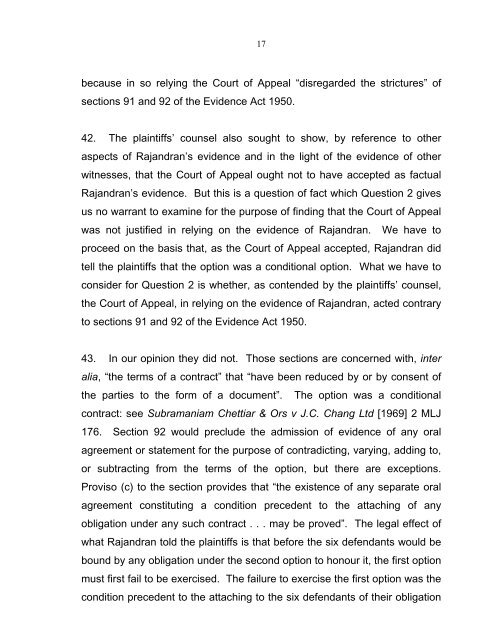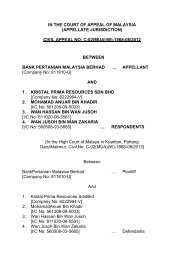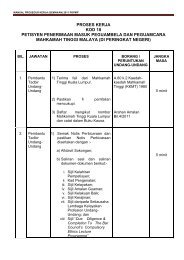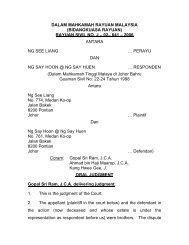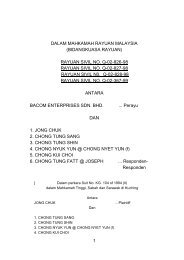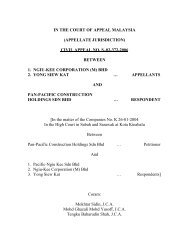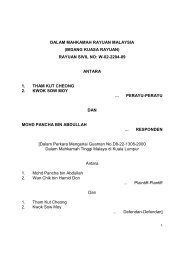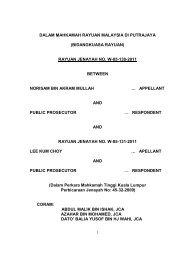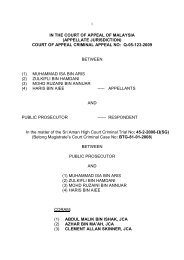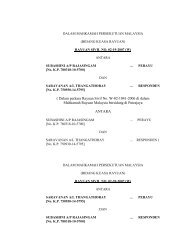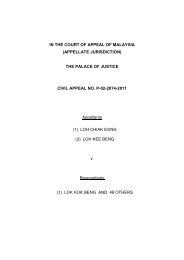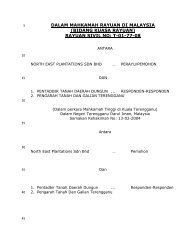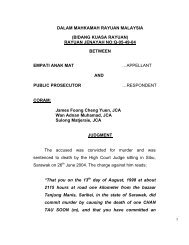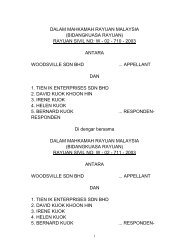rayuan sivil no: 02-39-2007 (w)
rayuan sivil no: 02-39-2007 (w)
rayuan sivil no: 02-39-2007 (w)
You also want an ePaper? Increase the reach of your titles
YUMPU automatically turns print PDFs into web optimized ePapers that Google loves.
17<br />
because in so relying the Court of Appeal “disregarded the strictures” of<br />
sections 91 and 92 of the Evidence Act 1950.<br />
42. The plaintiffs’ counsel also sought to show, by reference to other<br />
aspects of Rajandran’s evidence and in the light of the evidence of other<br />
witnesses, that the Court of Appeal ought <strong>no</strong>t to have accepted as factual<br />
Rajandran’s evidence. But this is a question of fact which Question 2 gives<br />
us <strong>no</strong> warrant to examine for the purpose of finding that the Court of Appeal<br />
was <strong>no</strong>t justified in relying on the evidence of Rajandran. We have to<br />
proceed on the basis that, as the Court of Appeal accepted, Rajandran did<br />
tell the plaintiffs that the option was a conditional option. What we have to<br />
consider for Question 2 is whether, as contended by the plaintiffs’ counsel,<br />
the Court of Appeal, in relying on the evidence of Rajandran, acted contrary<br />
to sections 91 and 92 of the Evidence Act 1950.<br />
43. In our opinion they did <strong>no</strong>t. Those sections are concerned with, inter<br />
alia, “the terms of a contract” that “have been reduced by or by consent of<br />
the parties to the form of a document”. The option was a conditional<br />
contract: see Subramaniam Chettiar & Ors v J.C. Chang Ltd [1969] 2 MLJ<br />
176. Section 92 would preclude the admission of evidence of any oral<br />
agreement or statement for the purpose of contradicting, varying, adding to,<br />
or subtracting from the terms of the option, but there are exceptions.<br />
Proviso (c) to the section provides that “the existence of any separate oral<br />
agreement constituting a condition precedent to the attaching of any<br />
obligation under any such contract . . . may be proved”. The legal effect of<br />
what Rajandran told the plaintiffs is that before the six defendants would be<br />
bound by any obligation under the second option to ho<strong>no</strong>ur it, the first option<br />
must first fail to be exercised. The failure to exercise the first option was the<br />
condition precedent to the attaching to the six defendants of their obligation


